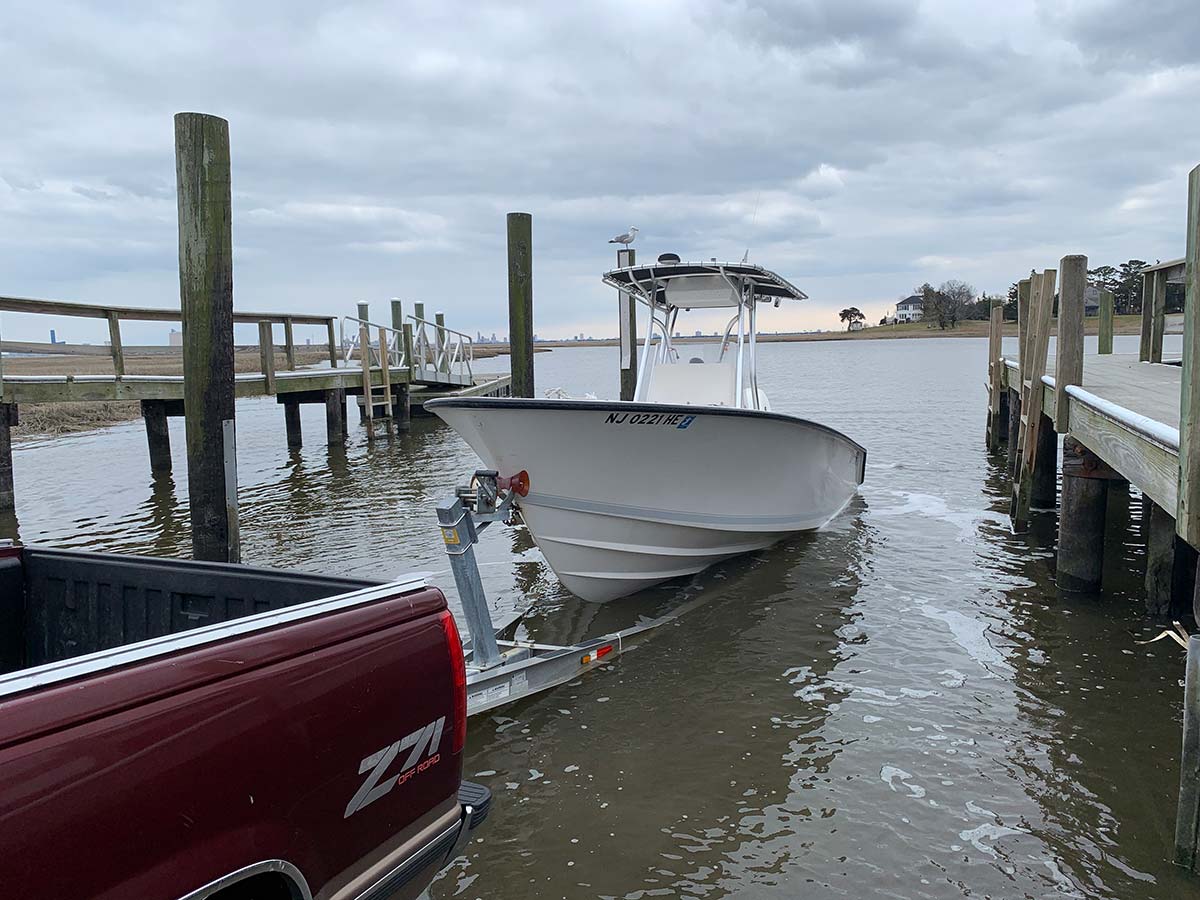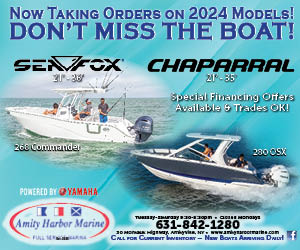
Trailering your boat opens a whole new world of fishing opportunity.
Staying mobile is one of the best ways to catch more fish. Consider the striped bass migration and how it moves north or south each spring and fall. Or watch how tuna reports explode in one region while staying quiet in another. Or how fluke action might be electric at one end of your state and dead at the other. The point is, owning a boat and staying mobile by trailering will open doors to unbelievable fishing. But there are nuances and important tips to making the experience safer and more efficient.
First there’s the basic maintenance. Bearings must contain grease and parts must be in the best working order possible. Rust is part of life for trailers so the big question regarding rust is: does it compromise the integrity and function of the trailer part? Remember a vessel getting dipped in and out of saltwater, then sitting at a ramp, is going to accumulate some rust over time. There’s no need to panic about this, rather captains simply need to monitor and assess the condition of their metal parts. Staggering your repairs will allow mobile skippers to spread out their financial responsibilities, making it easier on the wallet. Trailer lights need regular maintenance as grounds and bulbs fail often from regular dipping.
When setting out on the road, it’s best to use highways where a constant speed can usually be achieved. I like to travel in the right lane and drive 55 to 60 mph with a monstrous following distance between the vehicle in front of me. Moreover, I’m always planning a “landing spot” should I have to make evasive maneuvers due to a quick stop. An ample shoulder is a beautiful thing . Knowing where deer are likely to enter the roadway is also helpful. I’ve seen deer mindlessly standing in the middle of the road during their mating season.
Understanding where your exit lies and traveling in the proper lane ahead of time is best to avoid getting “pinned” in the wrong lane and missing the off ramp. An EZ Pass transponder creates easier driving, but if fishermen must use the cash tolls, it’s important to remember trailers can cause the fee to go up exponentially hence carrying some extra cash is essential.
Carrying an oversized jack that can obtain some height to hoist the trailer is critical should a flat tire occur. In addition, I carry blocks of wood to use as chocks and a can of PB Blaster to loosen lug nuts. I also hit the nuts weekly and turn and lube them periodically. I cut a large metal pipe and slip it over my lug wrench to create a fulcrum. This gives me more leverage to “break” tight lugs. When all fails, I maintain a “roadside assistance” plan with my subscription tow coverage in case I need a flatbed to get the entire boat and trailer off the highway.
Securing all the rods and equipment is crucial before and after the trip. Any loose tackle, buckets, loose clothes and gear will fly out of the boat. This has probably happened to all of us at some point in time.
Freshwater is our friend. Aside from washing the trailer handily at home or the marina, I scout out puddles and try to drive through them! Yes, driving through puddles from recent rain will spray freshwater all over the truck and trailer which is another fantastic way to douse everything.
When at the ramp, it’s important to stay out of the way while loading tackle and prepping. You don’t want to be “that guy” that holds up the entire line. The same goes after pulling out of the water. Move the boat away from the loading area before securing straps and accessories.
When deploying the trailer into the water, drivers should take notice of the ramp situation. If two boats can be launched simultaneously, then one boat shouldn’t hog the entire ramp. After launching, it’s best if one of the crew can pull the trailer out and park. If they aren’t ready for the pivot points of backing up a trailer, they can simply pull the trailer and clear the ramp until the primary driver frees up.
It’s important to follow the parking rules if it’s a private or municipal lot. Trailering captains should not block the ability for others to get into or out of spots based on selfish choices or poor parking.
Trailering in the Northeast fishing world creates all kinds of opportunities for outstanding fishing. Mobile captains that learn how to hit the road will catch more fish.




